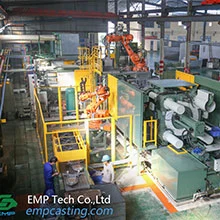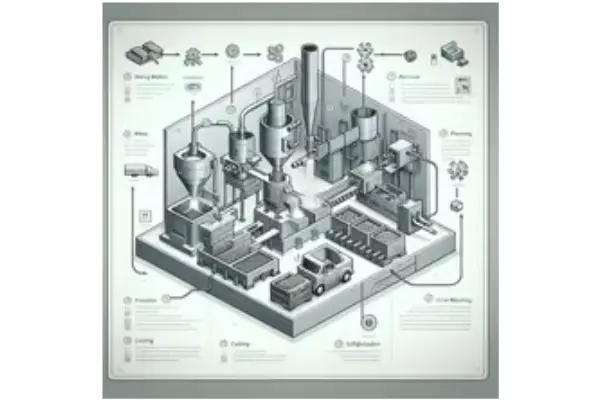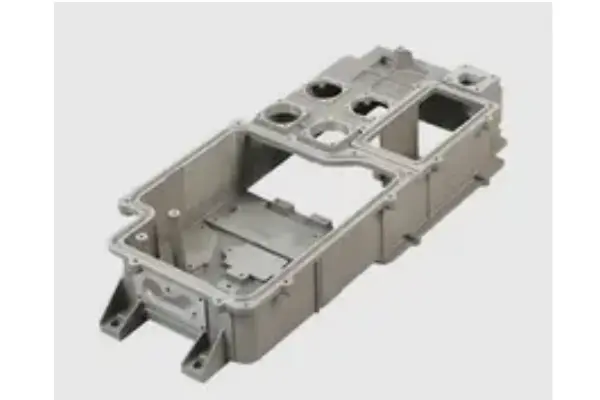

Electric motor housing is a critical component that protects the internal parts of an electric motor, ensuring durability, thermal management, and structural integrity. Whether for industrial machinery, automotive applications, or consumer electronics, selecting the right motor housing is essential for optimal performance.
In this guide, we’ll explore the fundamentals of electric motor housing, including its types, materials, manufacturing processes, design considerations, and how to choose the best motor housing manufacturer for your needs.
Electric motor housing is the outer shell that encloses and protects the motor’s internal components, such as the stator, rotor, and windings. It provides:
Mechanical protection against impacts, dust, and moisture.
Heat dissipation to prevent overheating.
Structural support to maintain alignment and reduce vibrations.
Electrical insulation to prevent short circuits.
Without a well-designed housing, motors would be prone to damage, inefficiency, and early failure.
Motor housings vary based on application, size, and environmental conditions. Common types include:
1. Die-Cast Motor Housing
Made using high-pressure die casting (HPDC) for precision and strength.
Ideal for aluminum electric motor housing due to lightweight and corrosion resistance.
2. Extruded Housing
Formed by pushing material through a die to create long, uniform shapes.
Often used for simpler, cost-effective designs.
3. Stamped Housing
Made from sheet metal, pressed into shape.
Common in small motors and consumer electronics.
4. Fabricated Housing
Assembled from welded or bolted metal plates.
Used for large industrial motors requiring customization.
Each type has advantages depending on the motor’s power, weight, and environmental exposure.
The material affects performance, weight, and cost. Popular choices include:
1. Aluminum
Lightweight & corrosion-resistant – Ideal for aluminum electric motor housing.
Excellent thermal conductivity – Helps dissipate heat efficiently.
Cost-effective for die casting – Used in automotive and industrial motors.
2. Steel
High strength & durability – Suitable for heavy-duty applications.
Magnetic properties – May require additional shielding in some motors.
3. Stainless Steel
Corrosion-resistant – Used in harsh environments (marine, chemical industries).
Heavier than aluminum – Not ideal for weight-sensitive applications.
4. Plastic & Composite Materials
Lightweight & non-conductive – Common in small motors and consumer electronics.
Limited heat resistance – Not suitable for high-power motors.
Choosing the right electric motor housing material depends on thermal, mechanical, and environmental requirements.
The production method impacts cost, precision, and durability. Key processes include:
1. Die Casting (Motor Housing Casting)
Molten metal (aluminum or zinc) is injected into a mold under high pressure.
Produces high-precision, smooth-surfaced housings with minimal machining needed.
EMP Die Casting specializes in high-quality motor housing casting for various industries.
2. Sand Casting
Uses sand molds for larger, low-volume production.
Less precise than die casting but cost-effective for custom designs.
3. CNC Machining
Provides high accuracy for complex geometries.
Often used for finishing cast or extruded housings.
4. Injection Molding (Plastic Housings)
Suitable for lightweight, non-metallic motor enclosures.
Die casting remains the most efficient method for mass-producing durable aluminum electric motor housing.
A well-optimized motor housing design ensures performance, efficiency, and longevity. Key considerations:
1. Thermal Management
Fins, vents, or cooling channels to dissipate heat.
Material choice (aluminum is best for heat dissipation).
2. Structural Integrity
Wall thickness, ribbing, and reinforcement to prevent deformation.
3. IP Rating (Ingress Protection)
Determines resistance to dust and water (e.g., IP65 for outdoor use).
4. Weight & Size Optimization
Lightweight materials (aluminum) for automotive & aerospace applications.
5. EMC Shielding (For Sensitive Electronics)
Metal housings help block electromagnetic interference.
A well-designed housing improves motor efficiency and lifespan.
Selecting a reliable supplier is crucial for quality and performance. Leading motor housing manufacturers include:
EMP Die Casting – Specializes in high-precision aluminum electric motor housing with die casting expertise.
Bosch – Provides motor housings for automotive and industrial applications.
Siemens – Offers customized solutions for large industrial motors.
Nidec Corporation – Known for high-efficiency motor components.
Regal Rexnord – Supplies durable housings for heavy machinery.
When choosing a manufacturer, consider experience, material options, and production capabilities.
Key factors to evaluate:
Experience & Expertise – Look for manufacturers like EMP Die Casting with a proven track record in motor housing casting.
Material Options – Ensure they offer the right material (aluminum, steel, etc.) for your needs.
Production Capacity – Can they handle large orders with consistent quality?
Customization – Do they support custom motor housing design?
Quality Certifications – ISO, IATF 16949 (for automotive), or other industry standards.
Cost & Lead Time – Balance affordability with reliability.
Electric motor housing plays a vital role in protecting and optimizing motor performance. From aluminum electric motor housing for lightweight applications to rugged steel enclosures for industrial use, selecting the right design, material, and manufacturer is crucial.
EMP Die Casting offers high-quality motor housing casting solutions with precision, durability, and customization options. Whether you need die-cast aluminum housings or specialized designs, partnering with an experienced manufacturer ensures long-term reliability.
For more details on motor housing solutions, visit EMP Die Casting today!


